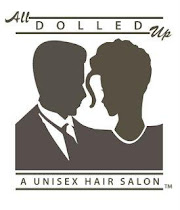By Leila Noelliste
Clutch Magazine
I was excited at first, when I heard a fancy-pants Chicago beauty school liked my site and wanted to partner. And somehow, I was still optimistic when I was told the designated speaker tried, and failed, to go natural.
But my hopes were pretty much dashed with her declaration of the unrealness of natural hair. I think it was the fact she spoke the words without a hint of the gross irony.
After that conversation I set out to understand how — despite existing in an age where black celebrities are taking razors to their heads in the name of naturalness — the mainstream beauty industry seems so blind to it all.
I asked my readers to submit their insider beauty industry insights. Reader Aeleise Harris, a licensed Chicago stylist, shared her experience; “The haircare industry is lagging behind its consumers when it comes to natural hair. White companies don’t market to us and the black companies only teach about relaxers. There is a serious disconnect between a.) consumers who want and need licensed professionals to care for their natural hair, b.) companies that produce natural products but provide no advanced education on natural hair c.) mainstream product companies that don’t even acknowledge the natural movement, and d.) stylists who can’t/won’t access the education to branch into natural haircare.”
I attended the Aveda Institute Tallahassee in 2005-2006 where care for black hair — even how to relax it — was barely taught. Natural hair was discussed even less, except in the context of flat iron silking/chemical texturizing it. I learned natural hair through my and my friends’ experiences. Upon moving back to Chicago, I attended a black hair school to get extra certification hours, and natural hair was only taught in the context of pressing it.

Beauty school is designed to teach you hair theory — the anatomy, chemistry, and the disorders of hair and scalp — the safe use of chemical treatments, and basic cutting and styling techniques that can be used on a majority of hair types. A beauty school’s only goal is to help students pass the state board exam, which is normally a 100-question computerized test.
After that your real education begins. Advanced classes are where stylists hone their skills of cut, color and style. Most of these classes are provided by companies that produce salon professional products, like Aveda, Redken, and Mizani.
But natural hair product companies go consumer direct, completely bypassing the licensed stylist. And unlike companies like Aveda, they are not providing the advanced education stylists rely on to build their educational arsenal. They do not stock their products in professional-only stores — and I should note that the average product in a professionals store is 30 to 50 percent less than retail.
ADU School of Cosmetology, a multicultural hair school in Deerfield Beach, FL has integrated real world clinical experiences to assist students in multicultural markets ability to perform after graduation. They have also been offering braiding and weaving courses for students looking to sharpen their edge in this area.
Many professional stylists want to incorporate natural hair into their service menus, but first the education must be accessible and experiential and the products must be salon quality.”



1 comments:
When will these classes begin and how do I sign up
Post a Comment